“Baku came to rescue… when there was civil war, famine”
Interview with Anzor Bitsadze
INTERVIEWS 16 April 2022 - 16:11
| Tamilla Mammadova Caliber.Az |
Caliber.Az interviewed a Georgian politician, a member of the Political Council of the United Georgia Party (party leader Nino Burjanadze) Anzor Bitsadze.
- Mr. Anzor, we express our gratitude for agreeing to give an interview. Did you go into politics under the influence of your mother Nino Burjanadze, who is a well-known politician in Georgia?
- First of all, I would like to express my gratitude to the Azerbaijani leadership for being one of those who made a statement about the non-recognition of the so-called "parliamentary elections" in the self-proclaimed "South Ossetia". Moreover, the local self-proclaimed government talked about holding a referendum to join the Russian Federation. This is another very friendly and very necessary step toward our country from our strategic partner, for which we are very grateful. Baku has always supported Georgia’s territorial integrity.
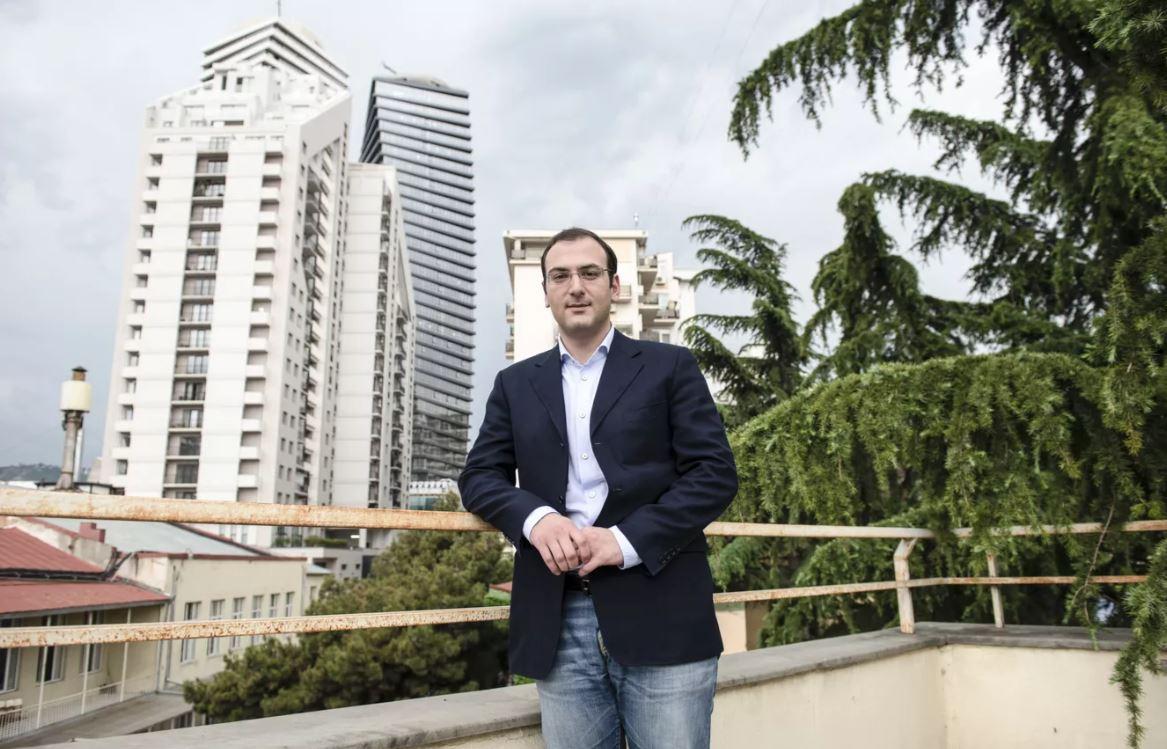
As for my plans, I would like to point out that I was involved in politics as an activist in 2003, when I was 18 years old, during the "Rose Revolution". I understood even then that it was impossible to stay away from all the processes that occurred in my country when young people participated in the rallies for a better future for their country.
Then, when Nino Burjanadze founded the political party in 2008, I started my activity there as an ordinary member of a youth organization, then headed this youth organization of the party. Shortly, I passed all levels at Nino Burjanadze’s party. Despite the fact that she was the chairperson of the party, I have never used this fact and always tried to go through all the stages of party activity and thus became a member of the Political Council. I have taken part in Georgia’s political life for several years, so I think that a person must go through certain life stages before becoming a public figure in the country. I have seen and heard a lot, and I can say with confidence that I have been interested in Georgia’s political life and have been at any stage in this sphere, I have participated in important political events in Georgia since 2000.
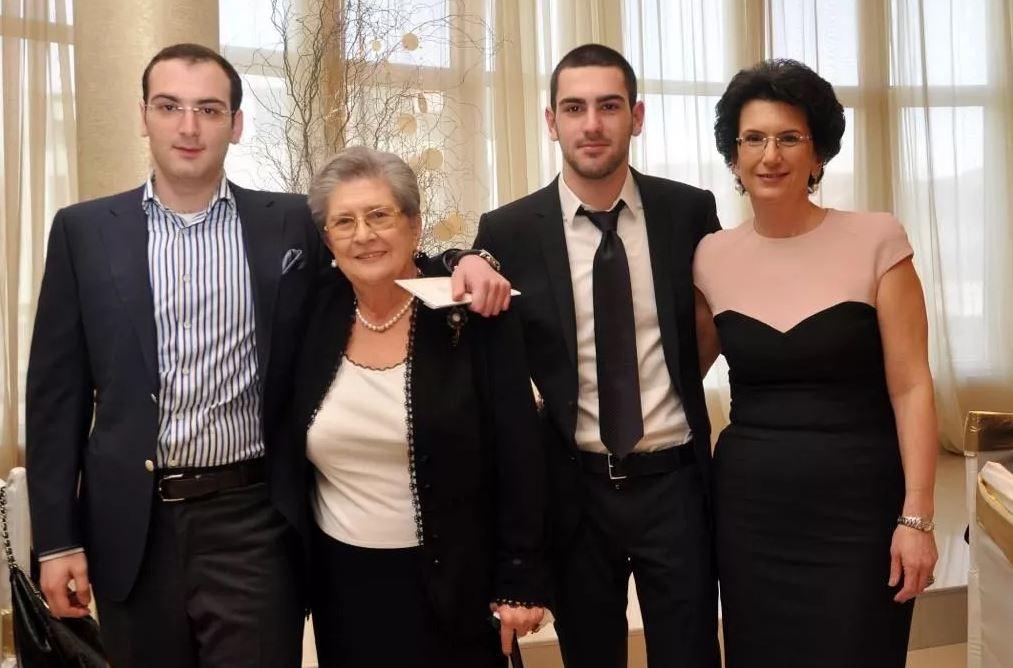
Of course, this path was not so easy, especially in such a growing democratic country like Georgia, but I think this is the best way to serve my people and my country by fully realizing my double responsibility as a family member of one of the Georgian most famous politicians. But I chose politics consciously. I think that everything is still ahead because there is something to fight for in today's Georgia.
- You are an opponent of this government. Do you think the current government is a logical result of the collapse of the "Rose Revolution" of 2003, one of the leaders of which was Nino Burjanadze?
- Thank you for this question. Indeed, we often discuss how we got the current power in Georgia.
The most unacceptable fact for me is that Georgia has proved itself to be a country in which everything is managed by a person informally, without holding any official positions, without appearing in public for more than one year, and this person is the richest person in the country, rather than a politician.
This turns out to be an absolutely unique model of country governance in the world, and we often wonder how we reached this.
I think that the "Rose Revolution" of 2003 greatly determined the events that already took place in 2012 when Bidzina Ivanishvili came to power. After the Rose Revolution, people had great expectations, because a promising young team came to the power.
The leaders of the "Rose Revolution", namely, Mikheil Saakashvili, Nino Burjanadze and Zurab Zhvania were really a brilliant team at that period. A lot has been done because Georgia before 2003 and after 2003 are two completely different countries. The state institutions began to strengthen. A number of very important reforms were carried out. Georgia’s economy greatly grew and the country was moving forward by leaps and bounds during the first few years. However, unfortunately, then a lot went wrong, as it seemed to me and my compatriots. The tragedy of 2008 occurred, when Georgia lost its territories, then the process of carrying out many reforms was stopped, and the biggest disappointment was that human rights were not a priority on the agenda, and then the rights were often violated. As a result, people began to vote for the new government in 2012 to send the previous one to the opposition.
Therefore, I think that the current government is the result of the mistakes that were made in the second half of the previous government's rule. The way out of this situation will not be easy, and we will have to fight politically to return to a normal system of government.
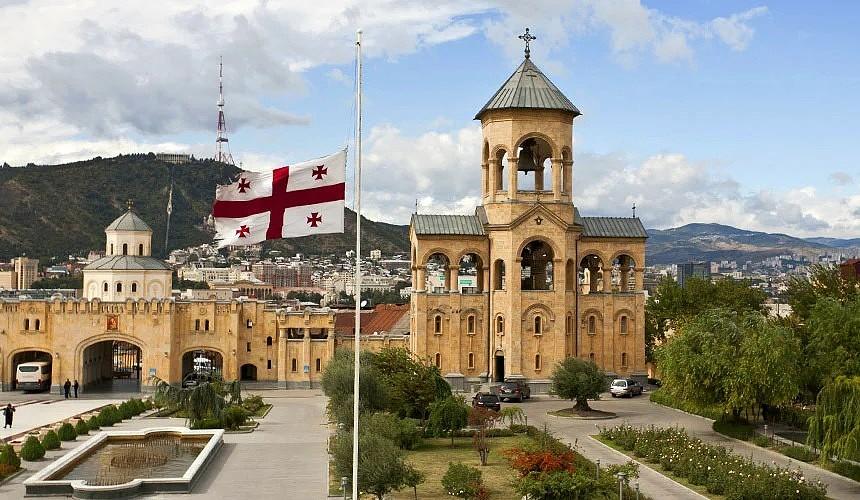
- The political paths of your mother and Saakashvili diverged long ago. May your party and Saakashvili's United National Movement cooperate?
- Indeed, their paths diverged long ago due to very deep and fundamental differences, especially in late 2007, when a foreign policy crisis occurred in Georgia. But when our paths diverged, when we were in opposition to the United National Movement, Saakashvili’s government fought with us by hook or by crook. We were a political party that had more than 40 prisoners during the period of the previous government. So, the relations between Nino Burjanadze and Mikheil Saakashvili, and our party are complicated.
As for the possibility of cooperation, I would rather call it an opportunity for further interaction within the unified opposition, because we think that when we have another goal to transfer the party of a person who sells the interests of his country to the opposition, the only way is to fully unite the opposition on the political front. A lot of our fellow citizens urge the opposition parties to coordinate and put aside differences.
Therefore, the interaction of opposition parties is an order of our society and it must be carried out carefully within the political culture. However, the goal of all Georgian opposition politicians is the same and very important - to revive the country, restore the significance of the country's rule in state institutions, as well as to stop informal rule.
- How does your party's approach to Georgia's membership in the EU and NATO differ from the current authorities?
- In this regard, there have been a lot of propaganda attacks against our political party since the period of Saakashvili’s rule, because it was very convenient for opponents to accuse us of all sins. I would like to emphasize that from the day of establishment of our party up till now, we have supported Georgia's membership in the EU and I can say that our party and its leader have more competencies to lead the country towards EU membership than the current government.
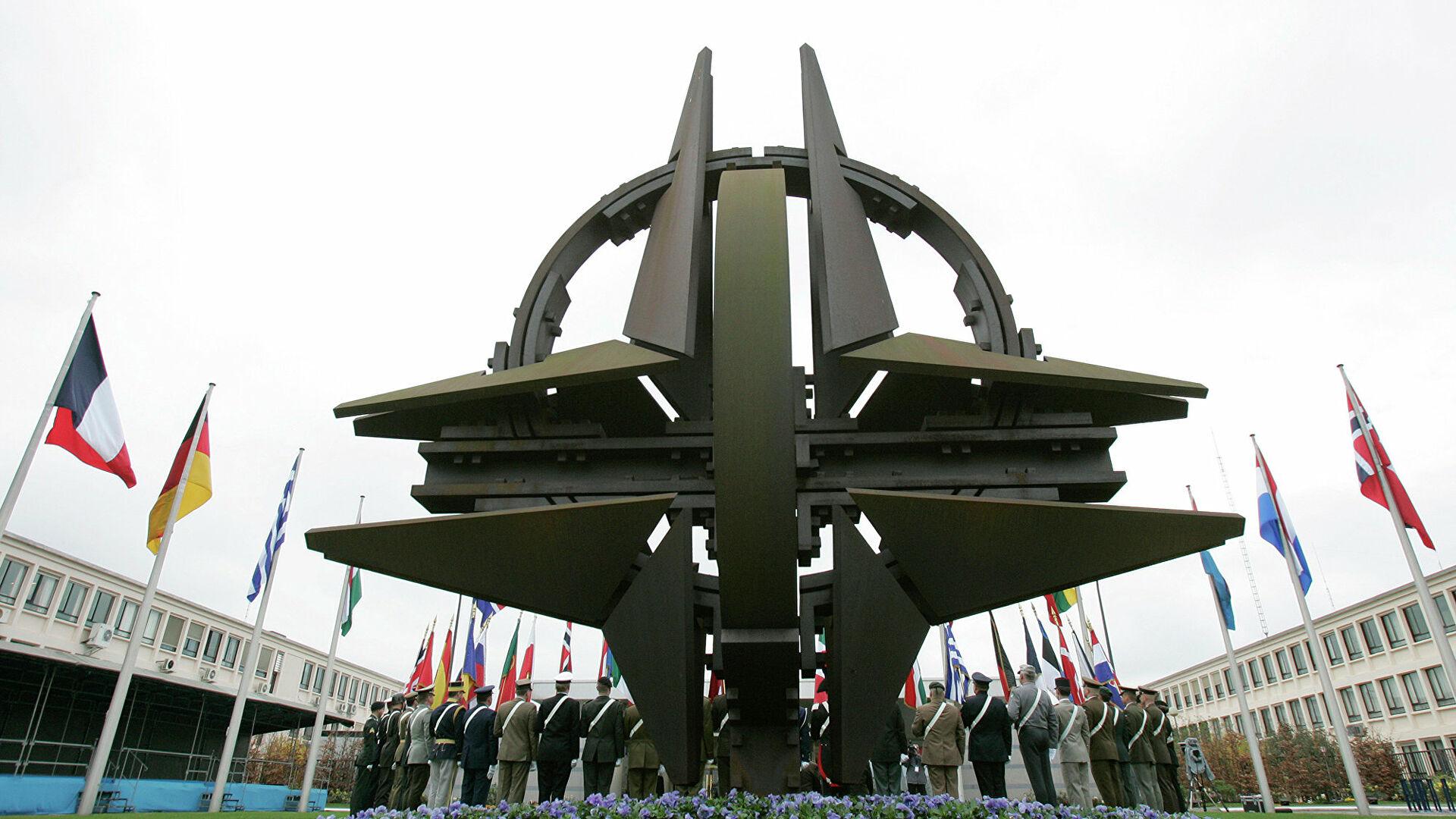
The path that the country must take to become a member of the EU is quite difficult. It is necessary to carry out reforms, keep the state structure in order, and get rid of informal government. Our party has the competence that can help the country become a member of the European Union.
Regarding the country's accession to NATO, we have had a slightly different position because we have always said that membership in NATO is an unrealistic task for Georgia. This has been testified at the Bucharest summit in 2008 when Georgia and Ukraine did not receive a membership card. We have never opposed cooperation with NATO, and this goal remains unchanged today. We think that Georgia must cooperate with NATO, but today, its membership in the organization is illusory and to deceive people in this regard is not noble.
- I apologize for the slightly tough question. But I must ask it, proceeding from the above-mentioned statement. Some people in Georgia suspect your party of sympathizing with Russia, consider it pro-Russian. Is this really so or does your pragmatic approach cause such an attitude in Georgia?
- I can assure you that Nino Burjanadze and our political party support a real and pragmatic policy.
Our party was accused of sympathy for Russia after relations between Burjanadze and Saakashvili escalated. Then, according to the command of the former government, everyone tried to prove that our party is a pro-Russian organization and that we have sympathy for Russia. All this was used in a propaganda plan against Nino Burjanadze, and the current government does not abandon this method.
In reality, we had a realistic approach, and we were the only political party that spoke out loud about the need to conduct a dialogue with the Russian Federation. Our party proposed to the society in 2016 to start thinking about Georgia’s non-aligned status, if in return we receive territorial integrity and de-occupation of our territories, which was used against us. So, the accusations of our party of the pro-Russian attitude are connected with the pragmatic statements that we have made and will continue making.
- What do you think about the cool relations between Tbilisi and Kyiv? Who is to blame for this and what will happen next?
- I think that when a friendly and strategic partner of our country is at war and when a severe crisis reigns in our region and the world, the Georgian authorities should be more diplomatic and more friendly to their Ukrainian colleagues while making the statements.
The process was launched after the statement made by the Georgian prime minister related to Ukraine and the question of whether Georgia will join the anti-Russian sanctions. In fact, our Ukrainian colleagues did not urge the Georgian authorities to impose sanctions on the Russian Federation, because, of course, if there are sanctions imposed by Georgia against Russia, then only the Georgian economy will suffer while Russia will not be affected.
Meanwhile, the Georgian authorities had a rather hostile attitude towards Ukraine, which was evident in every statement they made. I think this is a very important diplomatic test that the Georgian authorities failed, finding themselves in an awkward position towards Kyiv. This proves once again that in such turbulent periods Georgia needs a competent government that will proceed from the pragmatic interests of its country and will not be governed from anywhere.
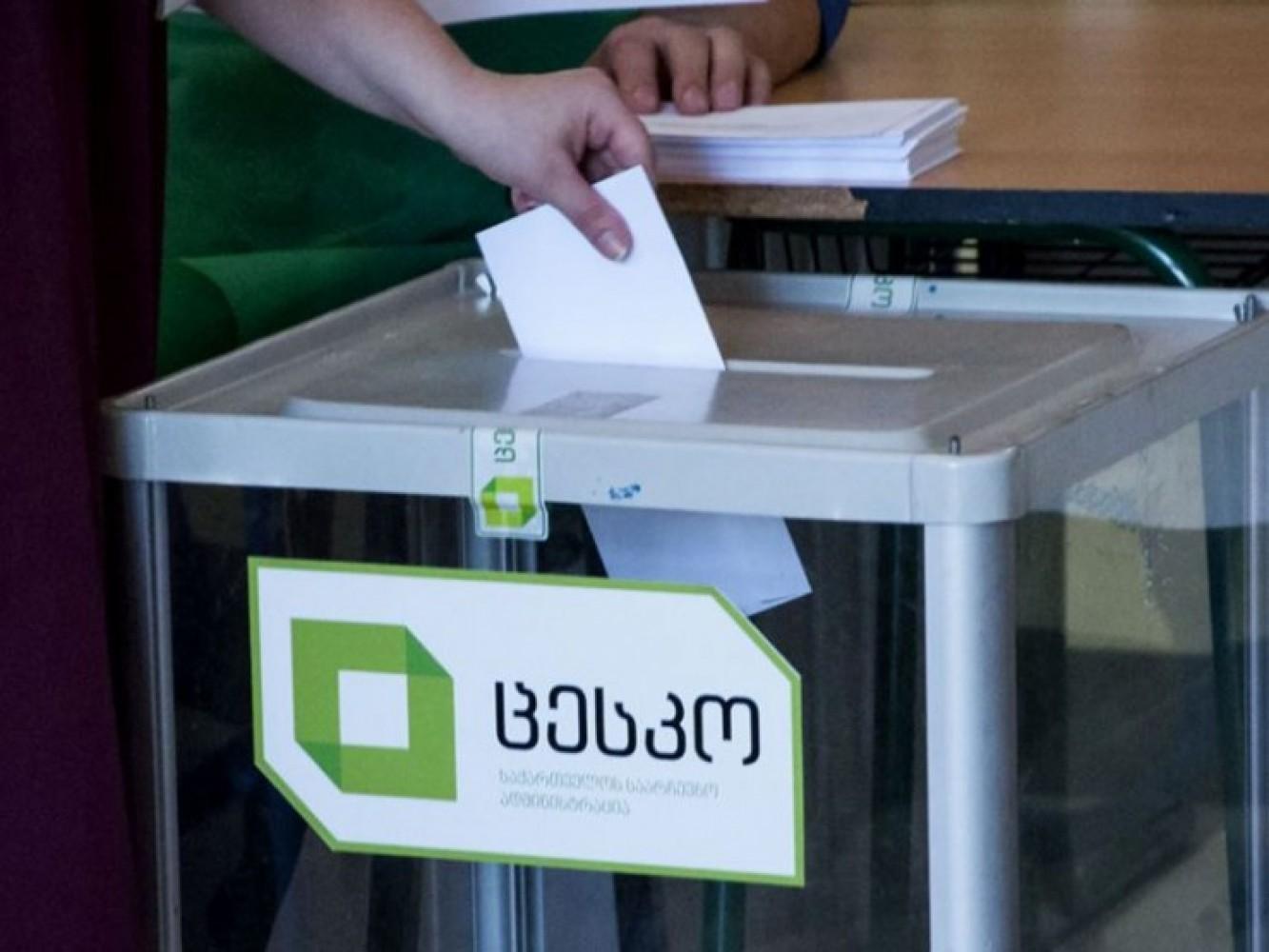
- What must be done today to win the parliamentary elections in Georgia?
- I think that the recent parliamentary elections clearly testify that if there is no absolute unity of the opposition parties, if the opposition does not show a united position against the government and Ivanishvili's party, then it will be difficult to repeat the result that the opposition parties had during the recent elections. It is necessary to understand that the opponent has an administrative resource, a certain number of supporters and a person who is richer than the entire Georgian economy.
If the opposition has really achieved something over the past 9 years, it achieved it only through unification. Such a situation was observed during Zviad Gamsakhurdia’s rule in 1992, Eduard Shevardnadze’s rule in 1995, and the Rose Revolution when several political parties joined in a grand coalition with three leaders of the revolution.
Ivanishvili also created a grand coalition in 2021, which consisted of all the main political parties of Georgia, as a result of which he managed to transfer the United National Movement to the opposition through a coalition. So there has never been such a case in Georgia when one political party with one leader would change power. I don't understand why most of my colleagues have forgotten about this because those politicians who really want to change the government in Georgia must clearly and realistically consider this task and look at history and the sentiments existing in society, at the political order that our voters have in relation to the politicians.
- Are there any issues in which you disagree with Nino Burjanadze?
- Nino Burjanadze has always welcomed disputes on political issues. She has never tried to impose her opinion, and even when I speak publicly or communicate with the media representatives, I do not remember when she tried to dictate her principles.
But, of course, we coordinate all the main points of our political activity among ourselves, but this happens through big discussions, sometimes reaching the political discussion. So she never urges anyone, especially me to fully agree with her opinion, this has not been and will not be so. I appreciate it very much and I think that this is one of the defining features of her character, which shows how open and democratic she is. She always tries to make me take full and maximum responsibility for my words and actions.
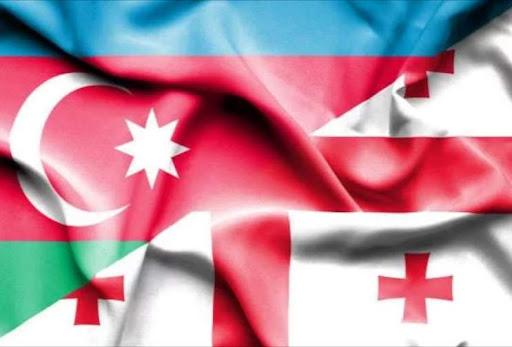
- What is your attitude towards Azerbaijan, its settlement of the Karabakh conflict and bilateral Azerbaijan-Georgia relations?
- I remember from childhood that there have always been special and truly fraternal relations between Azerbaijan and Georgia. Nino Burjanadze and I have recently recalled that when I was a child in the 1990s, the issue of the Baku-Tbilisi-Ceyhan pipeline was considered, a certain part of which passed through Georgia. Its creation is the merit of Azerbaijani national leader Heydar Aliyev and Georgian former President Eduard Shevardnadze. Then Nino Burjanadze was present at the negotiations and a rather problematic issue arose. Georgia received very little profit from the transportation of Azerbaijani oil through this pipeline, because international standards did not allow the transit country to receive more than a certain amount. Then there was a difficult period in Georgia. An economic and energy crisis reigned in the country. The civil war had just ended and the country was virtually ruined. Georgia received much more profit from the contract as a transit country than it was envisaged thanks to Baku. Azerbaijan greatly assisted.
When my grandfather was a minister, there was a civil war in Georgia. There were wheat stocks only for three days in Georgia, after which famine would begin. During that period, wheat was shipped to the Georgian ports, which was intended for Baku. Our country has asked the Azerbaijani government to give us wheat.
Then, Baku also assisted as a result of which Georgia was able to overcome this food crisis. There are a lot of similar examples testifying to the friendship between our countries and peoples. A reliable good-neighborly partnership between Tbilisi and Baku will last for a long time and nothing threatens it. Our countries will make a huge contribution to the stability and development of our region.
As for Karabakh, Georgia has always officially recognized the territorial integrity of our closest friend and strategic partner Azerbaijan, and we have always been bound by a common problem - the occupation of our lands. Therefore, the most important principle for Georgia is to maintain the territorial integrity of all sovereign countries.
Caliber.Az
|
1
|
Factory burst into flames in Germany PHOTO / VIDEO
03 May 2024 - 16:19
|
|
2
|
EU aid to Armenia stalled as Hungary pushes for Azerbaijan's inclusion Geopolitical tensions revealed
02 May 2024 - 17:41
|
|
3
|
Turning point for Georgia - Foreign Agents Law Georgian experts’ views for Caliber.Az
02 May 2024 - 12:40
|
|
4
|
Profiling Archbishop Bagrat Galstanyan – Tavush region protest leader
03 May 2024 - 17:20
|
|
5
|
The Azerbaijanis, not the Azeris, are hosting COP29 FDD article by Brenda Shaffer
02 May 2024 - 10:32
|
Azerbaijan, Morocco cancel visa regime
05 May 2024 - 11:32
Double standards and Michel's confession
Europe's hypocrisy05 May 2024 - 11:18
Russian troops take control of Ukraine's largest fortification in Krasnohorivka
05 May 2024 - 11:16
Azerbaijan, Somalia discuss issues of mutual cooperation
PHOTO05 May 2024 - 10:55
Georgia interested in cooperation on Green Corridor project, PM says
05 May 2024 - 10:39
Armenians protesting against delimitation of border with Azerbaijan reach Ijevan town
05 May 2024 - 10:18
World-renowned photojournalist plans to publish new books on his Karabakh journey
05 May 2024 - 10:01
Azerbaijani minister: Zangezur corridor to be beneficial for all countries in South Caucasus
05 May 2024 - 09:46
Azerbaijan to host 16th OIC Islamic Summit
05 May 2024 - 09:30
OIC urges Armenia to fulfill its commitments
05 May 2024 - 09:08
Bird flu outbreak in US cattle sparks fears over next global health crisis
05 May 2024 - 08:50
Senior UN official says northern Gaza is now in “full-blown famine”
05 May 2024 - 06:30
F-16 outclasses MiG-29 RAC in agility
05 May 2024 - 04:25
SEC shuts down Trump Media auditor over "massive fraud"
05 May 2024 - 02:20
Russia moved Karakurt-class warship to Caspian via inland waterways
05 May 2024 - 00:15
Denmark increases defense spending in view of Russian long-term war
04 May 2024 - 22:10
Boeing to send first astronaut crew to space after years of delay
04 May 2024 - 20:00
Kazakhstan extends ban on export of liquefied gas
04 May 2024 - 18:22
Skeletons missing hands and feet found in Hitler's Wolf's Lair
04 May 2024 - 18:12
Sudan on brink of "world's largest hunger crisis" — UN
04 May 2024 - 18:00
Azerbaijani, Turkish top diplomats hold meeting at OIC Summit
04 May 2024 - 17:49
Russia puts Ukrainian president on wanted list
04 May 2024 - 17:47
Netanyahu's vision for Gaza 2035 revealed online
From crisis to prosperity04 May 2024 - 17:32
Finalization of COP29 chairmanship agenda underway
Azerbaijani official says04 May 2024 - 17:17
Several arrested in connection with terrorist attacks in Iran
04 May 2024 - 17:02
Azerbaijan’s foreign ministry marks anniversary of cooperation with NATO
04 May 2024 - 16:47
US fund pledges aid to Azerbaijan in mine threat mitigation
PHOTO04 May 2024 - 16:32
Experts stress necessity for Armenia to embrace border demarcation with Azerbaijan
A crucial path to lasting peace04 May 2024 - 16:30
Uzbek president outlines priority areas for Foreign Investors Council
04 May 2024 - 16:19
Philippines accuses China of escalating tensions in South China Sea
Caliber.Az on YouTube04 May 2024 - 16:15
Azerbaijan, NATO enjoy mutually beneficial partnership - official
04 May 2024 - 16:10
Organizing Committee holds 3rd meeting for COP29 preparations
04 May 2024 - 16:05
Far-reaching tentacles of organized crime grasp Europe
Europol reveals alarming findings04 May 2024 - 15:52
ADB extends offer of support to Azerbaijani leader for success of COP29
04 May 2024 - 15:40
US tells Qatar to evict Hamas if it obstructs Israeli hostage deal
04 May 2024 - 15:27
Ankara to host forum addressing forced displacement from Western Azerbaijan
04 May 2024 - 15:12
Turkish military 'neutralizes' 7 PKK/YPG terrorists in northern Syria
04 May 2024 - 14:57
Azerbaijani president issues decree establishing Prosecutor's Office in Khankendi
04 May 2024 - 14:47
Conference in Baku explores international legal framework for return to Western Azerbaijan
04 May 2024 - 14:42
President Ilham Aliyev greenlights agreements with Türkiye
04 May 2024 - 14:33
